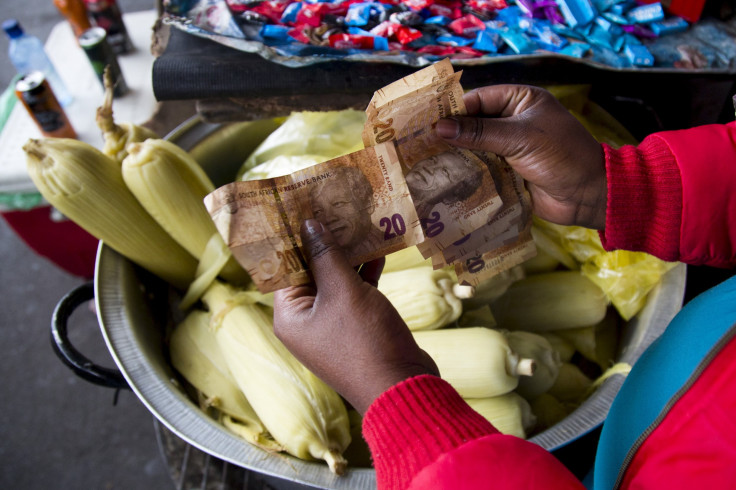South Africa's Rand Falls After 3-Week High, Despite Delayed US Interest Rate Hike

South Africa’s rand dipped Monday from its highest levels in three weeks, despite the U.S. Federal Reserve’s decision to delay raising interest rates. The South African currency recoiled from Friday’s gains after a top Fed policymaker said a rate hike this year is still likely, Reuters reported.
The commodity-linked rand was 0.27 percent weaker at 13.3515 to the U.S. dollar compared with Friday’s New York close of 13.350. South African government bonds echoed the rand as yields in the U.S. climbed, with the heavily-traded paper due in 2026 adding 3.5 basis points to 8.370 percent. Stocks also opened 328 points lower, with South Africa’s blue-chip Top-40 index shedding 0.72 percent Monday morning.
The world’s most influential bank last week decided to keep U.S. interest rates steady for now, but the prospect of a rate hike lingered and repelled investors from riskier assets as an economic slowdown in China fuels a slump in global commodity prices. A rate hike by the Federal Reserve would likely lead to a stronger U.S. dollar, which could threaten emerging markets such as South Africa. South Africa’s central bank has raised the benchmark interest rate twice since July last year and the rand, which is linked to the value of the country’s commodities, has softened 12 percent against the dollar this year, Bloomberg reported.
Rand dips from three-week high, stocks open lower http://t.co/sAFGUsBQLw pic.twitter.com/QvRrIRm6f5
— Eyewitness News (@ewnupdates) September 21, 2015
A U.S. interest rate hike is likely this year because the Federal Reserve’s decision last week to leave rates near zero “was a close call,” John Williams, a centrist and president of the San Francisco Fed, said Saturday.
"Given the progress we've made and continue to make on our goals, I view the next appropriate step as gradually raising interest rates, most likely starting sometime later this year," Williams reportedly said at a weekend conference on the China-U.S. financial system, according to Reuters.
Lower import demand in China has dealt a blow to countries such as South Africa, where producers of gold, wine and other goods depend on their Chinese trading partners. International confidence in China, the world’s second-largest economy, has weighed on emerging markets since Beijing suffered its worst single-day market losses in August since 2007.
Dwindling consumer confidence could also bring Africa’s second-largest economy to a crushing halt as South Africa grapples with lower Chinese imports, slumping commodity prices and sluggish economic growth. A recent report by the South African Institute of Race Relations found that growing financial pressure on South African consumers could further depress the country’s bleak economic outlook.
© Copyright IBTimes 2024. All rights reserved.











